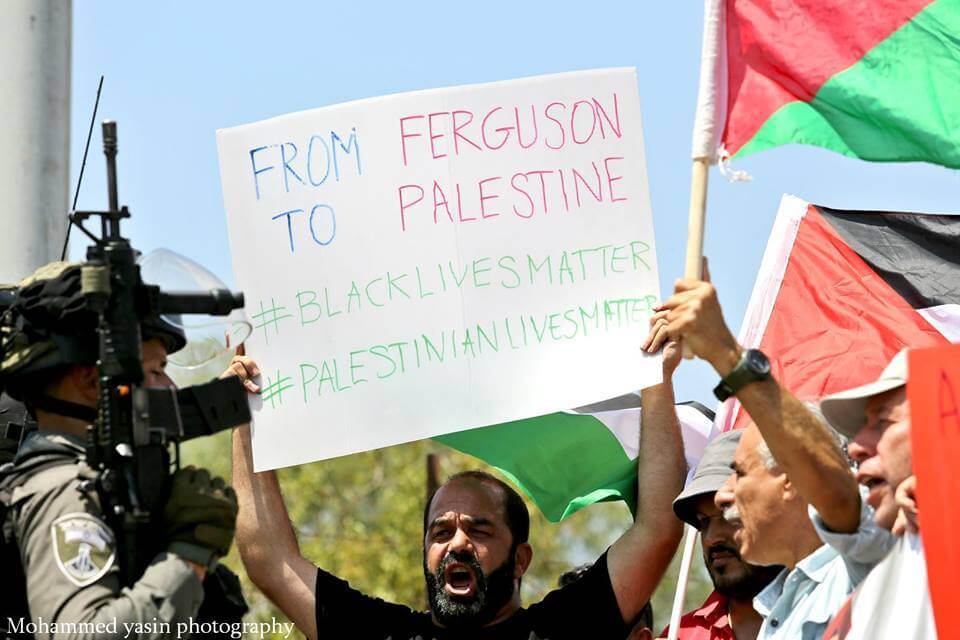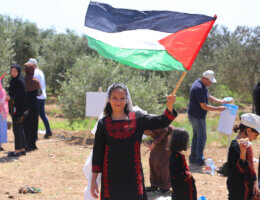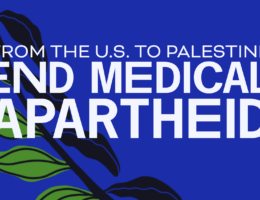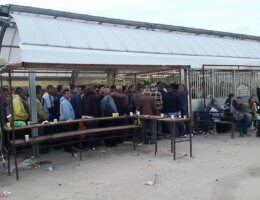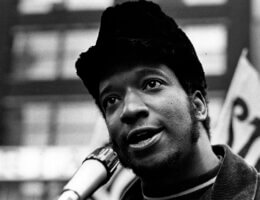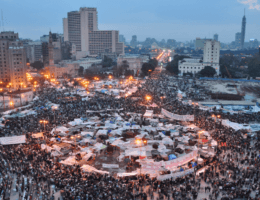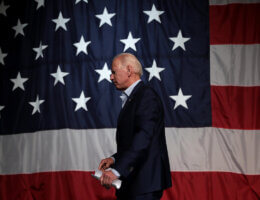Zionists are working hard to decouple the struggle for racial justice in the United States from Palestinian liberation, but the movements are intertwined through shared experiences of state violence and a legacy of joint struggle.
Palestinians from Gaza share their unfiltered accounts of the massacres carried out by Israel in May 2021, at the launch of the “Gaza is Palestine” campaign.
Adalah Justice Project’s Sumaya Awad talks with Jehad Abusalim about Gaza, the Palestinian Authority, and the US movement for Palestine in the wake of the latest Israeli aggression on Gaza. “It is crucial to understand Gaza and its experience in the context of the Nakba and its unfolding and continuation since 1948. This has to be the starting point if people want to be serious and invested in understanding the current situation in Gaza,” Abusalim explains.
COVID-19 did not invent systematic injustice, but it has exposed and sharpened injustices already there. Israel’s refusal to vaccinate Palestinians is but the latest chapter of its decades-long practice of colonialism, ethnic cleansing, military occupation and, of course, apartheid against the Palestinian people. The U.S. is itself a settler-colony with centuries of systematic racism to its name, and the tolls of COVID-19 remain systematically centered around Indigenous, Black and brown people. There is a name for this, and it’s medical apartheid. It’s time to take a stand to end all military funding to an apartheid regime overseas and to demand the end to apartheid right here.
Adalah Justice Project’s Sumaya Awad interviews Manal Shqair on the role of the Palestinian labor organizing in the liberation movement. “Dismantling of the Israeli settlement enterprise means that we Palestinians will be able to reclaim our land and natural resources. This, of course, will put an end to the exploitation of Palestinian workers by their Israeli employers,” Shqair explains.
Adalah Justice Project’s Sandra Tamari speaks with movement attorney Jeffrey Haas who recounts his work exposing the police and FBI murder of Black Panther leader Fred Hampton, and his commitment to supporting Palestinian liberation.
December 17 marked ten years since Mohammed Bouazizi, a street vendor in Tunis, set himself on fire in an act of defiance and desperation that triggered what would become known as the Arab Spring. Over the course of the last decade we have witnessed revolutions sweep the Middle East and North Africa, but we have also witnessed the sheer might and terror of counter-revolution as well. What are the lessons from the Arab Spring?
Ending US military funding must be a crucial pillar among the broad array of progressive movements demanding change. The intersecting struggles against climate change and militarism is an important point of collaboration for the Palestine movement in the push against a Biden administration.
